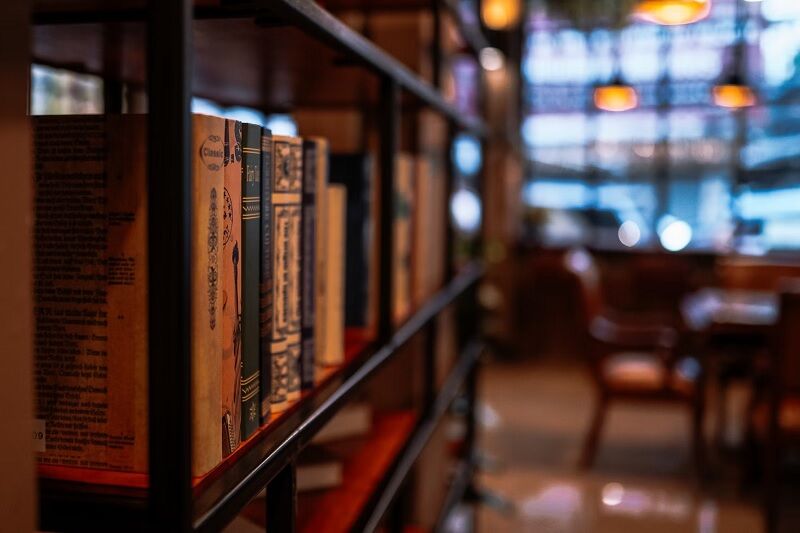How public libraries in Thailand help students

Envision the realm where knowledge is readily available, where exploration into historical depths or scientific frontiers is possible. That’s the potential public libraries hold, especially within Thailand. They serve as gateways to limitless learning opportunities, not mere structures housing books.
Located in Thailand’s core, public libraries have evolved to become an integral component in students’ educational journey. Vectored far beyond a serene studying environment, these venues are vibrant hubs, brimming with tools and services aiding academic triumph.
Overview of public libraries in Thailand
Immerse ourselves in Thailand’s vibrant world of public libraries. Unearth a rich tapestry of knowledge within the nation’s pagoda-style edifices and sleek, modern structures.
Categories of libraries
Thailand’s public libraries unfurl in a variety of guises. National Libraries, packed with valuable records and national literature, tell Thailand’s story. Public Libraries, found in cities and remote villages, offer free access to resources, while University Libraries aid students with academic materials. Lastly, Special Libraries serve specific institutions, holding specialised collections.
Importance in society
It impact in Thailand extends far beyond physical books. Providing literacy programs to communities, they nurtures intellectual growth. Collaborating in local events, they foster community spirit. Offering diverse resources, including internet access, they bridge the digital divide. Note the profound role these libraries play in Thailand’s social fabric, a testament to the nation’s commitment to education and communal togetherness.
The role of public libraries in Thai education

Public libraries in Thailand do more than just house books. They play pivotal roles in the educational development of students.
Bridging the educational gap
Thailand’s public libraries are crucial in bridging the educational gap. These institutions offer an extensive range of materials for every learning level. For instance, students from low-income families, who might lack access to educational resources at home, can utilise these libraries as an essential educational resource, aiding in reading and comprehension. By offering a free learning and studying environment, public libraries ensure that every student gets a fair chance at academic success.
Enhancing digital literacy
Technology is advancing, and with it, the need for digital literacy is heightened. Recognising this, public libraries in Thailand are working to enhance digital literacy among students. Libraries offer free access to computers and the internet, introducing students to the digital world. Workshops and training sessions are organised, centred on teaching computer basics, internet use, digital etiquette, and more. As a result, students cultivate a necessary skill set for the modern era, preparing them for both further education and future employment.
Key initiatives and programmes
Thai public libraries play an instrumental role in driving educational initiatives and programmes. They prioritise students, utilising ample resources to empower them. Two significant endeavours, the Every Child Can Read campaign and the development of student-centric resources and activities, exemplify the dedication of Thai public libraries to student success.
Every child can read campaign
This campaign fuels an ambitious national goal: nurture every Thai child’s reading abilities. Public libraries in Thailand are not merely sites where books are stored and borrowed; they transform into epicentres of literacy. Guiding this campaign, libraries organise reading sessions, boot camps, and literacy workshops, encouraging children to immerse themselves in worlds crafted by words. Libraries place literacy at the heart of their mission, as they are well aware that a child fluent in reading has opened the first door to personal growth and intellectual freedom.
Student-centric resources and activities
Beyond making books accessible, Thai public libraries also aim to cultivate a dynamic, stimulating learning environment for students. They constantly devise and implement a wide range of resources and activities, tailored to suit students’ unique academic needs and interests. Workshops focused on science, technology, engineering, and maths (STEM) cultivate budding innovators, while arts and crafts sessions spark creativity. Frequent debates and speaking engagements hone communication skills, preparing students not just for the classrooms, but for the world. The libraries are more than silence-filled monuments to books; they are vibrant hubs nurturing the minds shaping Thailand’s tomorrow.
Impact on local communities

Community engagement through libraries
Community engagement forms an integral part of public library culture in Thailand. Libraries, rather than just places for book lending, have transformed into community hubs. They host a variety of stimulating events, including reading sessions, arts and crafts activities, and interactive workshops that inspire students and encourage their participation. These events often serve dual purposes, such as instilling in students a love for reading, while also fostering greater community cohesion. Notably, libraries also create platforms for open debate, nurturing students’ critical thinking and argumentative skills. Through these initiatives, Thai libraries successfully strengthen their connection with local communities while rendering enormous educational benefits.
Success stories of student achievements
Thai public libraries have directly contributed to numerous instances of student achievements. Fueled by the resources and opportunities provided by these libraries, many Thai students have excelled both academically and in extra-curricular activities. For example, students attending STEM workshops in their local libraries have demonstrated improved performance in science class. Similarly, those participating in artistic or crafts-based activities have seen their confidence and creative skills blossom. Public libraries in Thailand, therefore, aren’t just repositories for books, they are springboards for student success in an ever-evolving digital landscape.
Challenges and future opportunities
The story of public libraries in Thailand straddles a diverse landscape of challenges conquered and opportunities yet to be explored. Let’s delve deeper into these, looking at resource limitations and the potential of advanced technologies in shaping the future of these establishments.
Addressing resource limitations
Public libraries in Thailand, while abundant in their initiatives for students, confront hurdles in the form of resource limitations. Access to a wide array of books and digital tools is crucial for student learning, pushing libraries to consistently enhance their offerings. However, limited funding often poses a constraint, restricting the scope of materials available. The challenge, thus, lies in optimising the use of existing resources and exploring diverse fund-raising avenues, both governmental and non-governmental.
The integration of advanced technologies
Bright, however, is the canvas of future opportunities that Thai public libraries offer to students. Among these gleams the prospect of integrating advanced technologies in library operations. From setting up digital databases, and enabling e-book lending, to introducing state-of-the-art learning tools inclusive of virtual and augmented reality – the potential is immense.
The integration of such technologies, while certainly a financial and technical challenge, holds the promise of transforming Thai public libraries into dynamic, future-ready learning spaces. As these libraries adapt and evolve, they continue to empower students across Thailand with enriched educational experiences.
You can also check out whether are libraries necessary anymore, They represent more than just edifices housing book collections; they serve as pivotal community hubs, repositories of information, and havens for wisdom enthusiasts. Libraries hold importance in moulding societies, underlining their irreplaceable value.
Latest Thailand News
Follow The Thaiger on Google News:


























